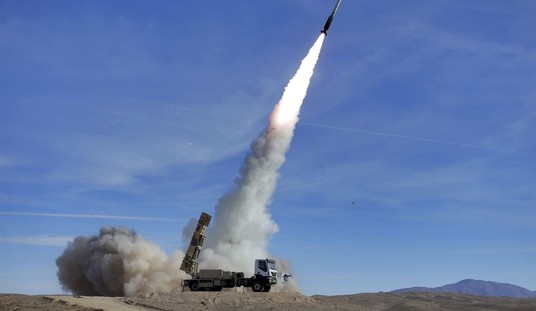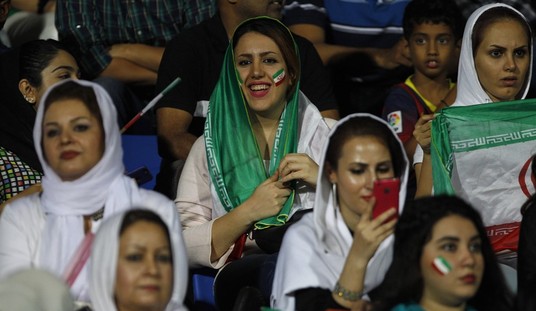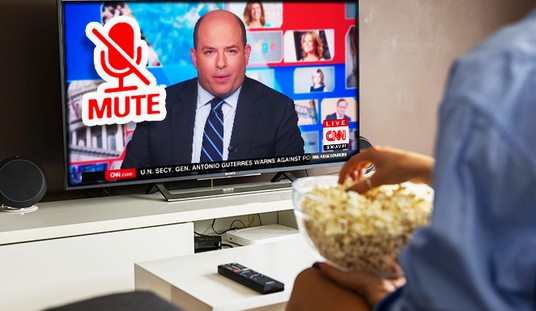One wonders what has happened that caused Noam Chomsky — a man who is perhaps the most far left scholar and anti-American political activist in this country — to attack his old friend, Hugo Chavez of Venezuela. Last week the British Guardian reported that Chavez, who once called Chomsky his “favorite intellectual,” has “now turned his guns on Chavez.” The story by reporter Rory Carroll noted that:
Speaking to the Observer last week, Chomsky has accused the socialist leader of amassing too much power and of making an “assault” on Venezuela’s democracy.
“Concentration of executive power, unless it’s very temporary and for specific circumstances, such as fighting world war two, is an assault on democracy. You can debate whether [Venezuela’s] circumstances require it: internal circumstances and the external threat of attack, that’s a legitimate debate. But my own judgment in that debate is that it does not.”
Chomsky, a linguistics professor at Massachusetts Institute of Technology, spoke on the eve of publishing an open letter (see below) that accuses Venezuela’s authorities of “cruelty” in the case of a jailed judge.
Chomsky, seemingly making sense for the first time in many years — decades actually — has accused the Chavez regime of treating Judge Maria Lourdes Afiuni with “cruelty,” which, if anything, is an understatement. The crime committed by the judge, in Chavez’s eyes, was that she freed Eligio Cedeno, a banker facing corruption charges, which were fabricated by the regime in a move to imprison opponents. So the dictator ordered Afiuni’s arrest, and put her in confinement with hard criminals she had previously sentenced in court. As a result she was beaten regularly and tortured, during over a year’s imprisonment.
Chomsky called this behavior “acts of violence and humiliations to undermine her human dignity.” As the story noted, the attacks on Chavez by Amnesty International and the European parliament were easily ignored — the criticism coming from one of his heroes is something else. Chomsky also said: “I’m skeptical that [Afiuni] could receive a fair trial. It’s striking that, as far as I understand, other judges have not come out in support of her … that suggests an atmosphere of intimidation.”
The radical leftist scholar also continued to criticize Chavez for using enabling powers — much as Hitler did as he took power in Germany in the 30s –and said: “Anywhere in Latin America there is a potential threat of the pathology of caudillismo [authoritarianism] and it has to be guarded against. Whether it’s over too far in that direction in Venezuela I’m not sure, but I think perhaps it is. A trend has developed towards the centralization of power in the executive which I don’t think is a healthy development.”
Of course, he somewhat backtracked by emphasizing he still supports the Bolivarian revolution, as Chavez calls it, and he gives the regime credit for supposedly reducing poverty in Venezuela and creating self-governing communities. In the letter to the regime, Chomsky wrote:
Judge Afiuni had my sympathy and solidarity from the very beginning. The way she was detained, the inadequate conditions of her imprisonment, the degrading treatment she suffered in the Instituto Nacional de Orientación Femenina, the dramatic erosion of her health and the cruelty displayed against her, all duly documented, left me greatly worried about her physical and psychological wellbeing, as well as about her personal safety….
In times of worldwide cries for freedom, the detention of María Lourdes Afiuni stands out as a glaring exception that should be remedied quickly, for the sake of justice and human rights generally and for affirming an honourable role for Venezuela in these struggles.
Two days ago, the news got to our country, when the New York Times ran its own story. One must understand that Chomsky’s plea for the judge’s freedom separates him from others on the American Left. A few years ago, former Nation magazine publisher and editor in chief Victor Navasky went to Venezuela on behalf of journalists who support freedom of the press and the right of reporters to cover stories without repression from the regimes they are writing about. Upon his return, Navasky said he could not condemn the Chavez regime for its repression because he did not want to hurt a government devoted to the poor.
Navasky’s reaction is the kind one has come to expect from Noam Chomsky. For those who want to read about Chomsky’s many crimes against reason, I recommend the Encounter Books volume The Anti Chomsky Reader (edited by Peter Collier and David Horowitz), which presents critical assessments of Chomsky’s take on almost everything political he has written about.
In the 1980s, when I and others were writing critically about the Sandinista regime in Nicaragua, Chomsky wrote in one book that CIA scholars, as he called them — singling out myself and Robert Leiken — were doing the job of the agency by producing justifications for U.S. intervention to overthrow the Nicaraguan Marxists. He is, one must say, the last person one would expect to suddenly lash out at Hugo Chavez, whose regime he backs.
So why did he do this? I think I have an answer, and it comes from something he told me many decades ago, when I spoke with him in Wellfleet, Mass., when I was vacationing in the Cape Cod town. Chomsky, who at times has called himself a libertarian socialist or a Marxist anarchist, told me that he would not travel to Vietnam, despite many invitations, since he knew he would not like the Stalinist regime, and would be compelled to criticize it. Publicly he defended the North Vietnamese Communists and the Viet-Cong because they were under attack from American imperialism, he told me, and he was honor bound to solidify support for the anti-war movement in the United States and the Vietnamese Communists and their government. He would not have been able to carry out that task, he said, had he accepted any of their invitations. But by not personally going to the country, he could avoid criticizing it.
In his interview with the Guardian, he notes that he has made a judgement that the Chavez regime is not under external attack from the United States — and hence he is free to criticize its policies. For Chomsky, this is a major step forward. Until this time, if you care to go through his voluminous writing, he generally calls critics of totalitarian left-wing regimes apologists for the United States. He would never beforehand concede that these regimes were not under severe danger from the United States. By saying that they are not, he has undercut the argument Chavez’s defenders always make about why they must be supported.
In taking this stand, Chomsky has unwittingly exposed the corruption of the pro-Chavez group in the American Left, in particular, Oliver Stone, whose film two years ago was a paean to the regime and an apologia for its misdeeds. He has in effect laid down the gauntlet for others on the Left to follow his example. And, in fact, one can hope that he would not stop at Chavez, and would extend his critique to the Castro brothers and their prison regime in Cuba.
So, reluctantly, I salute Noam Chomsky, and on this 4th of July, I give him two cheers for a step towards common sense.
ALSO READ: Chávez returns to Venezuela









Join the conversation as a VIP Member